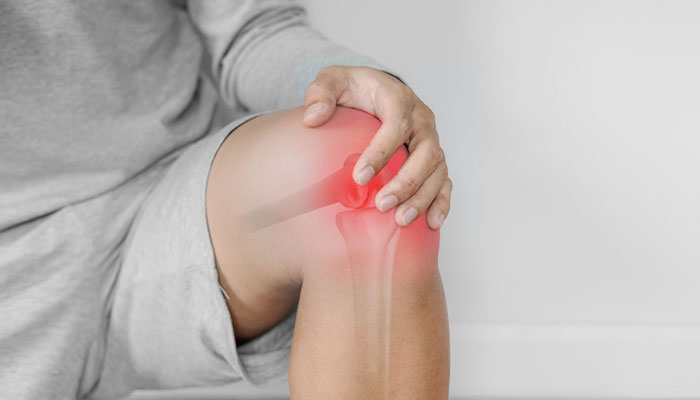Introduction
Rheumatoid Arthritis (RA) is an autoimmune disease in which the body’s immune system attacks the synovial fluid that surrounds the joints, resulting in chronic inflammation, joint damage, and pain. Rheumatoid arthritis affects joints on both sides of the body including the fingers, wrist, hands, and knees, as well as ankles, toes, and feet. However, in some cases, it can also affect other areas of the body, such as the eyes, the skin, the mouth, the heart, and the lungs.
Signs and Symptoms of Rheumatoid Arthritis
The symptoms of rheumatoid arthritis can vary from one person to another. It can have flare-up symptoms and flare-off symptoms. Some common symptoms of RA are:
- Fever
- Weight loss
- Weakness
- Fatigue or tiredness
- Swelling of joints
- Morning stiffness
- Pain or tenderness in several joints
- Stiffness in more than one joint
Causes of Rheumatoid Arthritis
The exact cause of RA is unknown, but it likely involves a combination of genetic, environmental, and hormonal factors.
Understanding Rheumatoid Arthritis in Ayurveda
In Ayurveda, rheumatoid arthritis is often referred to as “Amavatha.” Ayurveda believes that each individual is born with a distinct body-mind called “Prakriti”. This Prakriti is based on a unique combination of three biological principles known as doshas: Vata, Pitha, and Kapha. A person who has predominant Vata, Kapha, Prakriti, and/or disequilibrium is more likely to develop Amavatha / RA. Let’s understand each of these perspectives:
Vata Dosha: Vata is responsible for the control of bodily movements and sensory perception. In rheumatoid arthritis, imbalanced Vata may cause pain and stiffness in the joints.
Kapha Dosha: Kapha governs bodily fluids, stability, and strength. An aggravated Kapha dosha can lead to inflammation and swelling of the joints.
Treatment and Management
Medications such as disease-modifying antirheumatic drugs (DMARDs), nonsteroidal anti-inflammatory drugs (NSAIDs), and biological agents are commonly used to reduce inflammation, slow disease progression, and manage symptoms. Physical therapy, joint protection techniques, and lifestyle modifications can also aid in managing the condition.
Palliative Care provided by SGP’s PSA can also be an integral part of managing rheumatoid arthritis, particularly for individuals with advanced disease or persistent symptoms. Palliative Care aims to enhance quality of life by addressing pain management, symptom control, emotional support, and psychosocial well-being.
FAQs about Rheumatoid Arthritis
-
No, rheumatoid arthritis is not contagious. However, it can spread from one part of the body to another and can cause problems in various organs such as the lungs, heart, and eyes.
-
Be active and modify your diet. Managing your body weight and adopting healthy lifestyle habits is one of the best ways to cope with your arthritis pain. Exercise, such as walking and doing aerobics, can help keep your joints fit and reduce the risk of worsening arthritis pain.
-
Yes, children can develop arthritis, the most prevalent form of which is Juvenile Idiopathic Arthritis (JIA). Symptoms of childhood arthritis are permanent and require early diagnosis and appropriate treatment to reduce or eliminate the risk of recurrence.
-
No, all arthritis forms are not rheumatoid arthritis. Autoimmune diseases such as lupus and systemic sclerosis, gout, and psoriasis can cause arthritis in your joints. Psoriatic arthritis is a type of arthritis that can cause joint pain and other symptoms similar to rheumatoid arthritis.
-
Yes, approximately 10% to 25% of people do not have the typical rheumatoid antibodies (RF or ACPA) but still experience signs and symptoms of the condition. This is called seronegative arthritis. The treatment for this condition is similar to other types of arthritis. However, the progression of this condition is usually better in those who are negative for the antibodies.






